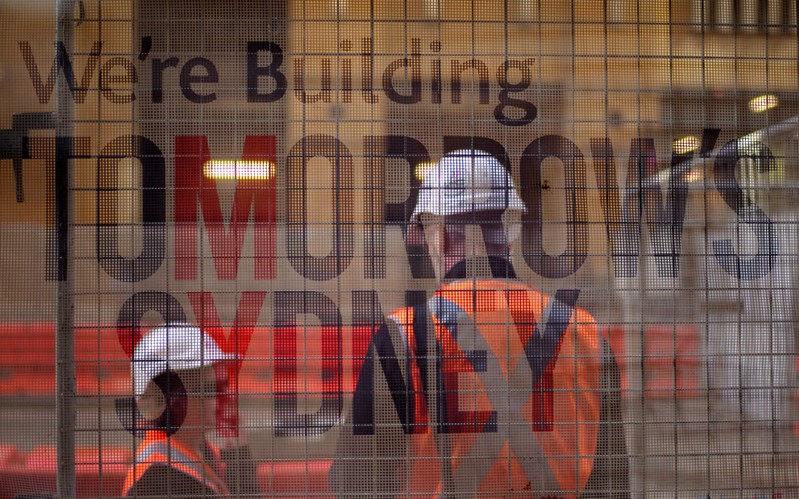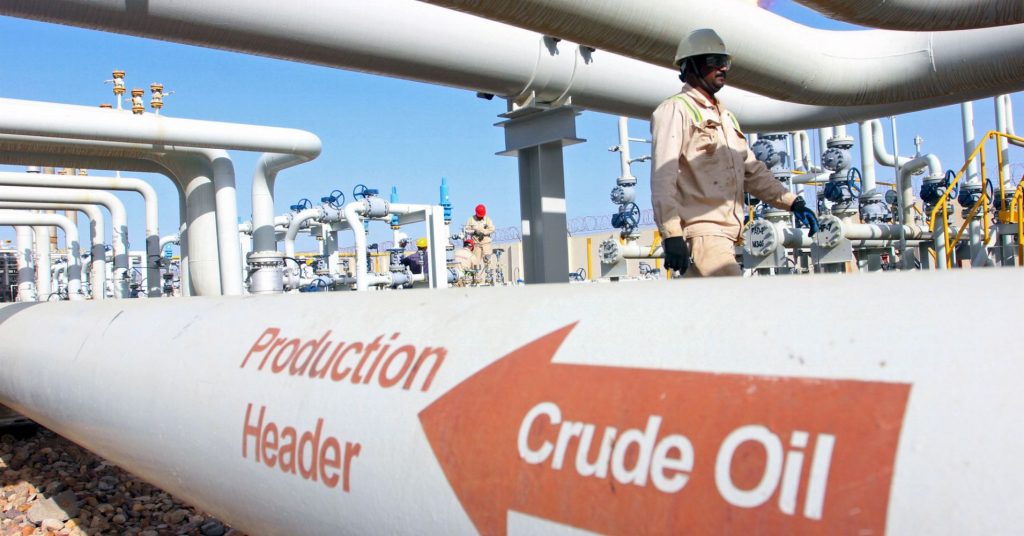
FILE PHOTO – Construction workers on Sydney’s light rail infrastructure project are pictured behind a banner in Australia, May 9, 2017. REUTERS/Jason Reed/File Photo
December 5, 2018
By Wayne Cole and Swati Pandey
SYDNEY (Reuters) – Australia’s economy slowed more than expected last quarter as consumers reacted to tepid wage growth by shutting their wallets, a disappointing outcome that sent the local dollar sliding as investors pushed out the chance of any rate hike.
The news came as fears of a possible slowdown in the U.S. economy and the Sino-U.S. tariff slugged world shares and threatened future business investment.
The gloomy report prompted Australian wealth manager AMP to call for a rate cut and forced HSBC to push back its rate rise prediction from the second quarter of 2019 to the end of next year.
“Given the combination of falling house prices, tightening credit conditions and constrained growth which will keep wages growth weak and inflation below target we are changing our view,” AMP chief economist Shane Oliver said. He had earlier predicted stable policy out to mid-2020.
UBS economists forecast cash rate unchanged at 1.50 percent through 2020 but added a rate cut cannot be ruled out if weak data continues next year while National Australia Bank said it was “reassessing its view.”
Market pricing has changed too <0#YIB:> with futures now implying only a 20 percent probability of a hike by Christmas next year, down from 40 percent earlier this week.
Wednesday’s gross domestic product (GDP) report showed Australia’s economy expanded 0.3 percent in the third quarter, half of what economists had expected.
Annual GDP rose by a still-respectable 2.8 percent to A$1.8 trillion ($1.32 trillion), but confounded expectations in a Reuters poll for a 3.3 percent increase.
The figures imply growth in the year to June was 3 percent, rather than the originally reported 3.4 percent.
The data will not be welcomed by the Reserve Bank of Australia (RBA), which predicts growth of around 3-1/2 percent this year and next.
“With weaker-than-expected Q3 GDP numbers, only modest momentum in… wage and price indicators, and the recent fall in oil prices, we are lowering our GDP and (inflation) forecasts and pushing back the timing of our rate hikes,” said HSBC’s Paul Bloxham.
The disappointing set of numbers sent the Australian dollar <AUD=D4> diving to a one-week trough of 0.7282 from a high of $0.7355 touched earlier in the day. It was last down 0.6 percent at $0.7297.
MISERLY CONSUMERS
Australia’s economy has generally outperformed its rich world peers in recent years and is in its 28th year of growth without a recession.
But while the RBA has maintained its optimism, economists are increasingly getting bearish on future momentum as Australia’s once-booming housing market hits the brakes, with potentially adverse effects on consumer wealth and spending.
A long stretch of unusually slow wages growth has also throttled household incomes.
Indeed, a major drag in Wednesday’s report came from private consumption, which added a mere 0.2 percent to growth after 0.7 percent in the June quarter.
The GDP report showed that while employers were taking on a lot of new workers they weren’t paying them much more, so average wages rose by just 0.2 percent in the quarter.
This soft underbelly of the economy is a major worry for the Reserve Bank of Australia (RBA) and is one reason it kept interest rates at record lows of 1.5 percent this week.
Adding to the case for caution is the ongoing U.S. trade dispute with China, Australia’s single most lucrative export market.
Thus while the RBA is still tipping economic growth of 3.5 percent this year and next, it shows no inclination to tighten anytime soon.
(Additional reporting by Karishma Luthria in Sydney; Editing by Sam Holmes)

